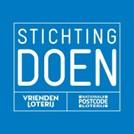The Nutrient density proof of practice project is a side-by-side comparison of regenerative and conventional farming practices on a commercial scale and will study the influence of regenerative farm management practices on the nutrient density and variety in soil, plants, and crops.
Regenerative farming has many proven benefits; not least cycling our nutrients, managing waterflows, sequestering carbon, restoring biodiversity, and supporting climate mitigation and resilience. But what if the evolution of the predominant conventional form of agriculture has not only negatively impacted on our environment and climate, but has also significantly reduced the nutrient value of the crops we grow for consumption?
Numerous studies since the 1940s have shown that the nutrient density of our food crops has been reducing over time and with science making significant advances into soil biodiversity, we now know that soil organic matter, and soil biodiversity can have a direct effect on the nutrients that plants can access and utilise.
Through this evidence-based proof of practice project we want to see if farming regeneratively, and the range of practices that entails, has a direct effect on the nutrient and density of the plant and final crop. In this study we will not only compare regenerative and conventional agriculture, but look at the different effects of a range of regenerative practices, such as the application of biostimulants, compost, biofertilisers, cover crops etc.
We aim to answer the following questions:
- Does regenerative agriculture lead to a higher nutrient density and variety in food than conventional agriculture?
- Which regenerative practices have the most significant impact on the nutrient density of crops and food?
To enable us to continually test the soil, plants and final food crops throughout the 3 year trial, we have established a bespoke farm lab on the Klompe Farm, where the trials are being carried out. Using a range of handheld and lab based instruments, specifically calibrated to catch the nutrient values, we will regularly monitor the biology and micronutrients of samples collected from both the conventional and regenerative plots in order to better understand the cycling of micronutrients and other compounds from soil to plant and final crop.
Learnings will be shared throughout the study with regular updates and farm tours. The final results are expected in early 2026.








